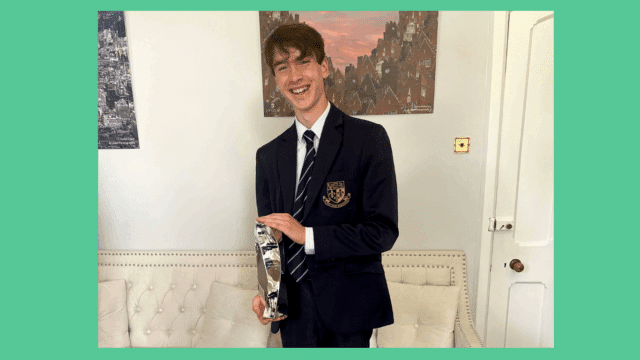Explaining the four stages of sleep, Mrs Britton discussed its vital role in supporting physical and mental well-being, and why teenagers often face unique challenges in getting enough rest. A key takeaway was the two-hour delay in the teenage sleep-wake cycle, which makes falling asleep and waking up early particularly difficult. Pupils also learned how blue light from screens disrupts their natural circadian rhythm by suppressing melatonin, making sleep harder to achieve.
Practical advice – such as avoiding screens an hour before bed, dimming lights in the evening, and getting exposure to morning daylight – was brought to life with clear explanations of the science behind these strategies, helping pupils see how small changes can make a big difference.
This session built on Mrs. Britton’s lecture last half term about the extraordinary reconstruction of the teenage brain during adolescence, which highlighted how their actions can positively shape this critical period of development.
Together, these lectures have given pupils a deeper understanding of their bodies and minds, while encouraging them to reflect on how small adjustments could improve their well-being now and in the future.





